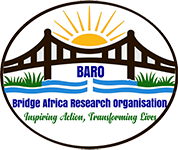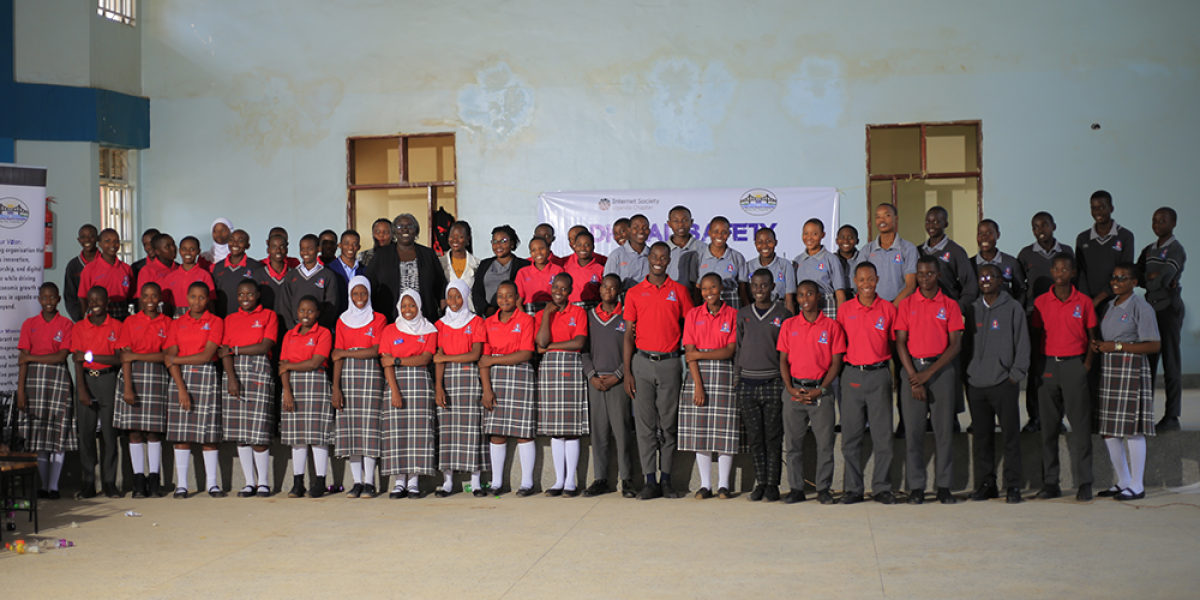Digital Democracy Project
Our Project Mission
To harness the power of technology to promote inclusive, transparent, and accountable governance in Uganda, while ensuring a safe and secure online environment.
The Digital Democracy Project aims to achieve the following objectives:
- To promote e-governance and digital transformation in public institutions, enhancing service delivery and citizen engagement
- To foster a safer internet environment through awareness, education, and advocacy, protecting citizens from online harms and promoting digital literacy
- To leverage digital platforms to amplify citizen voices and facilitate meaningful participation in democratic processes
- To promote transparency and accountability in governance through data-driven research and advocacy
Our Digital Democracy Project engages in activities that promote online safety and security.
BARO is dedicated to fostering a safer and more secure online environment, recognizing the critical importance of protecting individuals from various digital threats. Through our initiatives, we aim to promote online safety and security, thereby preserving sensitive information, boosting online confidence, and encouraging responsible digital citizenship. By emphasizing the importance of online safety, we empower individuals to navigate the digital world with greater assurance, ultimately contributing to a more trustworthy and positive internet experience for all participants in our democratic processes.
Furthermore, our commitment to online safety and security is integral to ensuring that digital platforms remain a vibrant and inclusive space for civic engagement, free expression, and access to information. By protecting users from online threats and promoting best practices in digital security, we can help build a more resilient and trustworthy digital ecosystem that supports the principles of democracy and facilitates informed participation in public life.
Articles Under "Digital Democracy Program"
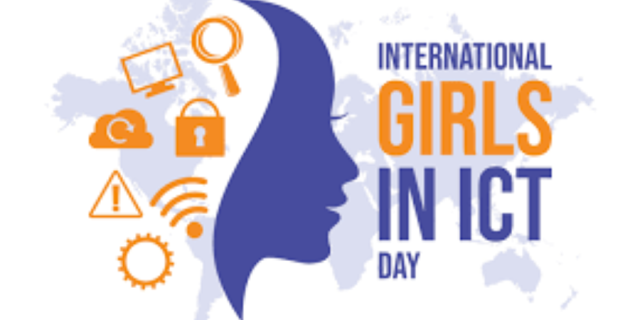
Empowering Girls in ICT: A Step towards Inclusive Digital Transformation
As we celebrate International Girls in ICT Day 2025, today, Thursday, 24th April 2025, we are reminded that “the future belongs to those who believe in the beauty of their dreams.” (Eleanor Roosevelt). In today’s digital age, technology plays a vital role in shaping the future of various careers. However, the ICT sector still faces a significant gender gap, with girls and women underrepresented. Encouraging girls to pursue STEM education and careers in ICT can help bridge this divide and foster inclusive digital transformation. The theme for this year’s celebration, “Girls in ICT for Inclusive Digital Transformation,” emphasizes the importance of bridging the digital divide and promoting equal access to opportunities in Science, Technology, Engineering, and Mathematics (STEM) for girls and young women. As Hillary Clinton aptly puts it, “We need to be serious about supporting and nurturing our girls if we are serious about building a better, stronger and fairer future.” A Brief History: How the Movement Began International Girls in ICT Day was launched by the International Telecommunication Union (ITU) in 2011. Since then, it has been observed every fourth Thursday in April, aiming to bridge the gender gap in Science, Technology, Engineering, and Mathematics (STEM), with a particular focus on Information and Communication Technology (ICT). From modest beginnings, the day has grown into a powerful movement that celebrates girls and women in tech, inspires role models, and encourages organizations and governments to break down systemic barriers. Over the years, it has led to thousands of events in more than 150 countries, reaching over 400,000 girls globally. In 2025, the ITU, along with the Commonwealth of Independent States (CIS) and Arab States regions, will host a global livestream, connecting young girls and thought leaders from Bishkek to Nouakchott, igniting inspiration across continents. Africa is home to the world’s youngest population, with more than 70% of sub-Saharan Africa under the age of 30. However, African girls remain vastly underrepresented in digital and STEM careers. According to UNESCO (2024), women make up only 30% of tech professionals in sub-Saharan Africa, with even fewer in leadership and decision-making roles. The gender digital divide in Africa is among the widest globally, with millions of girls lacking basic internet access, let alone digital literacy or advanced tech training. To bridge this gap, we must prioritize the integration of ICT and digital education into national curricula, starting from primary school. Governments, private sector leaders, tech companies, and parents must work together to provide structured mentorship programs, industry internships, and targeted scholarships that uplift girls and young women in tech-related fields. As the African proverb goes, “When you educate a girl, you educate a nation.” By empowering girls in ICT, we can unlock innovation, create jobs, and drive inclusive development. Girls bring creativity, resilience, and a deep understanding of their communities’ challenges. When we invest in their digital education, we’re not just changing their lives; we are transforming the entire continent. Let’s work together to create a more inclusive digital world where girls and women can thrive in ICT and related fields. As we say in Africa, “A single thread can break, but together, threads can make a rope strong enough to hold a nation.” On this International Girls in ICT Day 2025, let us not only inspire but act. Because an inclusive digital Africa is not possible without girls. Let’s teach her, equip her, mentor her, and trust her. Because Africa’s girls are Africa’s power.
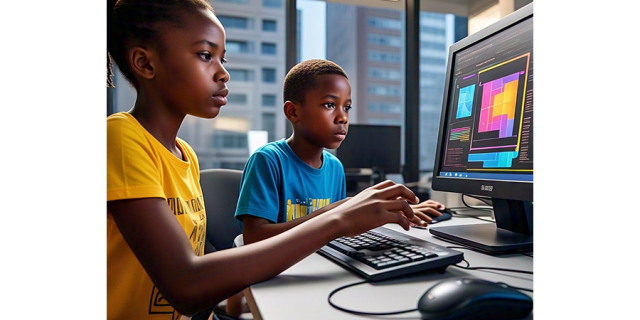
Empowering Uganda’s Youth: Advancing Child Online Safety
The internet is like a vast library, but without the right guidance, it’s easy to get lost in the pages. As we navigate the digital age, it’s crucial to equip our children with the knowledge and skills to stay safe online. To address this need, BARO (Bridge Africa Research Organisation) and ISOC (Internet Society, Uganda Chapter) are jointly organizing a one-day digital camp, “Advancing Child Online Safety in Uganda,” scheduled for April 24th, 2025, at Fort Portal SSS. A Safe Online Environment for All “The future belongs to those who believe in the beauty of their dreams.” (Eleanor Roosevelt) Our children are the future, and it’s our responsibility to ensure their online experiences are safe and positive. The digital camp aims to create awareness among young internet users on how to stay safe online, focusing on the following topics: Advancing Child Online Safety in Uganda: Keynote speech by Ms. Grace Mbabazi, the Probation, Social and Welfare Officers (PSWOs), Fort Portal Tourism City Cyberbullying Prevention: How to identify, report, and prevent online harassment Knowledge on Online Safety: Interactive quiz to test participants’ understanding Real-Life Stories and Case Studies: Sharing personal anecdotes and experiences on online safety issues Learning from Each Other “When you pray, move your feet.” (African Proverb) Let’s work together to promote online safety in Uganda. The event will bring together student leaders, experts, and stakeholders to discuss and share insights on advancing child online safety. Empowering the Next Generation “If you want to go fast, go alone. If you want to go far, go together.” (African Proverb) By equipping young people with the knowledge and skills to navigate the online world safely, we can empower them to become responsible digital citizens. The digital camp will provide a platform for participants to engage with experts, share experiences, and learn from each other. Our Target Audience and Aim Our audience will be 50 student leaders at Fort Portal SSS. The aim of this seminar is to equip young internet users with the knowledge and skills to stay safe online, enabling them to become responsible digital citizens and promoting a safer online environment in Uganda. Collaboration for a Safer Online Community “The strength of the team is each individual member. The strength of each member is the team.” (Phil Jackson) The partnership between BARO and ISOC demonstrates the power of collaboration in promoting online safety. By working together, we can create a safer online environment for all Ugandans, especially children.
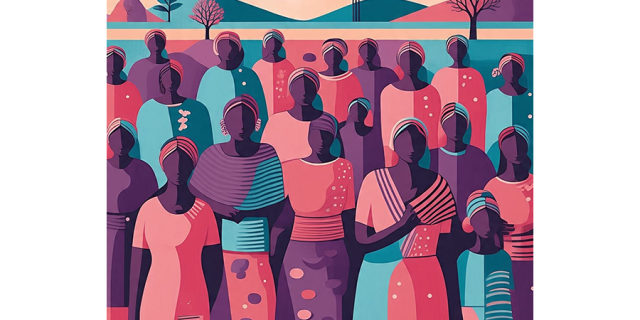
Empowering Women: A Misconception Debunked
The notion that upraising women means undermining men is a pervasive misconception that has persisted for far too long. This misguided thinking has led to a misguided narrative, where the advancement of women is seen as a threat to the status quo, rather than a necessary step towards a more equitable society. As the African proverb goes, “When you empower a woman, you empower a nation.” This wisdom highlights the transformative impact that women’s empowerment can have on communities and societies. The Zero-Sum Game Fallacy At the heart of this misconception lies the zero-sum game fallacy. This flawed logic assumes that the empowerment of women must necessarily come at the expense of men. In other words, if women gain, men must lose. However, this is a false dichotomy. The empowerment of women is not a zero-sum game, where one gender’s gain must come at the expense of the other. As Maya Angelou once said, “Do the best you can until you know better. Then when you know better, do better.” This quote emphasizes the importance of continuous learning and growth, and the need to challenge and overcome outdated and misguided thinking. The Reality: Empowering Women Benefits Everyone In reality, empowering women has a positive impact on society as a whole. When women are given equal opportunities, they are able to contribute their skills, talents, and perspectives to the table. This leads to more diverse and inclusive decision-making, driving innovation, economic growth, and social progress. For example, a study by McKinsey found that companies with diverse workforces are more likely to outperform their less diverse peers. This highlights the economic benefits of empowering women and promoting diversity and inclusion. As the saying goes, “Give a man a fish, and you feed him for a day. Teach a woman to fish, and you feed a community for a lifetime.” This proverb emphasizes the importance of empowering women and providing them with the skills and knowledge they need to succeed. Empowering women has numerous benefits. Improved economic outcomes are a direct result of women’s participation in the workforce, leading to increased economic growth, reduced poverty, and improved living standards. Women’s empowerment also promotes social inclusion, reduces inequality, and fosters a more cohesive society. Furthermore, women’s empowerment leads to improved health outcomes, including reduced maternal mortality, improved reproductive health, and increased access to healthcare. Finally, women’s empowerment leads to increased political representation, ensuring that women’s voices are heard and their interests represented. As Malala Yousafzai, Nobel Peace Prize laureate, once said, “One child, one teacher, one book, one pen can change the world.” This quote highlights the transformative impact that education and empowerment can have on individuals and societies. Conclusion Uprising women does not mean undermining men. Rather, it means recognizing the inherent value and worth of women, and providing them with equal opportunities to participate, contribute, and thrive. By empowering women, we are not taking away from men, but rather, we are creating a more just, equitable, and prosperous society for all. As the wise words of Nelson Mandela remind us, “For a woman to be empowered is for her to be given the tools and the support to be able to make her own decisions and to be able to fulfill her own potential.” This quote emphasizes the importance of empowering women and providing them with the support and resources they need to succeed.

Empowering Women in the Digital Age
As we celebrate International Women’s Day, we recognize the significant strides women have made in various fields, from science and technology to arts and entrepreneurship. However, despite these advancements, women continue to face unique challenges, particularly in the digital realm. The internet has revolutionized the way we live, work, and interact. It has opened up new opportunities for women to connect, learn, and thrive. However, it has also created new barriers and risks, including online harassment, cyberbullying, and digital exclusion. According to a recent report, women are more likely to experience online harassment than men, with 53% of women reporting online abuse. This can have serious consequences, including anxiety, depression, and even physical harm. Moreover, women are underrepresented in the tech industry, making up only 25% of the workforce. This lack of representation can perpetuate biases and stereotypes, limiting opportunities for women and girls. So, what can we do to empower women in the digital age? Promoting Digital Literacy Digital literacy is critical for women to fully participate in the digital economy. We need to provide women with the skills and knowledge to navigate the internet safely and effectively. Addressing Online Harassment We need to create a safer online environment for women. This requires policies and laws that address online harassment, as well as education and awareness campaigns to promote digital citizenship. Encouraging Women in Tech We need to encourage more women to pursue careers in tech. This requires mentorship programs, scholarships, and other initiatives to support women in STEM fields. Celebrating Women’s Achievements Finally, we need to celebrate women’s achievements in the digital realm. We need to recognize and honor women who are making a difference online, whether through innovation, activism, or leadership. As we celebrate International Women’s Day, let us commit to empowering women in the digital age. Let us work together to create a safer, more inclusive online environment that promotes digital equality and opportunities for all. Happy International Women’s Day!
